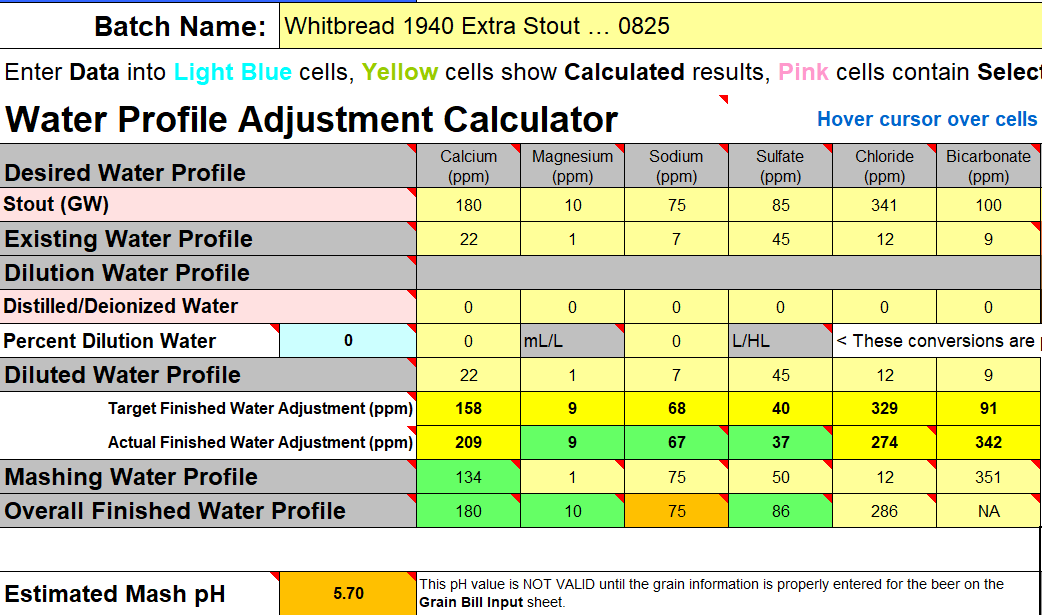At the typical dosing of gypsum in brewing, the temperature of the water has NO effect on gypsum solubility. If your gypsum doesn't dissolve when stirred into the water and kept suspended by stirring for a minute or so, then the gypsum probably isn't pure and may contain chalk. If a drop of acid on your 'gypsum' produces any bubbling, then it is contaminated with chalk. Pure gypsum and acid won't produce bubbling.
Dave, the small amounts of baking soda, gypsum, and calcium chloride are not enough to result in calcium carbonate forming in the water and clouding it up. The cloudiness is just particulate salts that haven't dissolved yet. KEEP STIRRING until the water clears. The other consideration is that baking soda is a BASIC BUFFER (contains HCO3 or CO3) and its not a BASE (contains OH). It doesn't really raise pH significantly like a real base like lime or lye does. I show that adding a good dose of baking soda to RO water only increases pH from 7.2 to 8.0 in a check I just performed.
Mashing pH does change during the course of a mash and an early pH measurement is not likely to be the pH at the end of mashing. I find that mashing pH doesn't become constant until about 45 minutes into the mash. An early pH check is OK to check, but it isn't the final pH.
Do check pH at around 45 minutes and NEVER chase pH by adding acid or buffers because your early pH isn't where you targeted. If you're using good mashing chemistry software like Bru'n Water, the ending pH will be in the ballpark and should be close enough. Do measure final pH if you can and compare it to the software prediction and use that information to tell you to bias your software target higher or lower based on those previous results. Remember, grains and additives (including salts) can be off from what was assumed in your software and if you observe consistent deviation from your target, move the target to hopefully end up where you want your wort to be.








![Craft A Brew - Safale S-04 Dry Yeast - Fermentis - English Ale Dry Yeast - For English and American Ales and Hard Apple Ciders - Ingredients for Home Brewing - Beer Making Supplies - [1 Pack]](https://m.media-amazon.com/images/I/41fVGNh6JfL._SL500_.jpg)






































